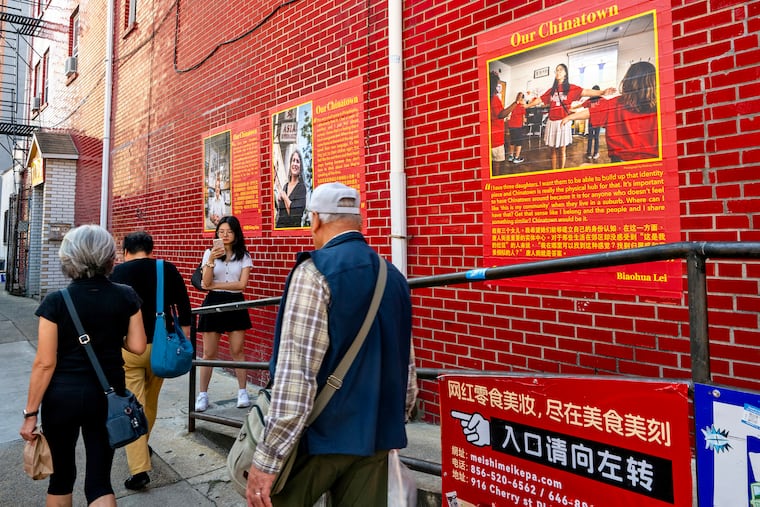The Chinese Adoptee Collective is planning a convention in Philly’s Chinatown
The collective is hosting a virtual Q&A session at 8 p.m. Oct. 24 for people interested in joining

Since China began to allow international adoption of its children in 1992, over 82,000 of them have been adopted in the United States. The program officially ended last month, leaving people who came through it like Philadelphia’s Jess V.B. in a mix of emotions.
“It‘s a bittersweet feeling. It won‘t happen to anyone else, but then I have to think about my community and what the truth means to them,” V.B. said. “It just makes us an even more siloed community within an already siloed community.”
To help bring their community together, V.B. and other adoptees have created the Chinese Adoptee Collective, a group designed to build connections and organize events for people adopted from China. It is a closed collective, meaning it is only for adoptees, not parents, siblings, or partners.
V.B. was adopted from the Jiangsu province on the eastern coast of China, just north of Shanghai, in 1994. They were raised in Lower Merion by a white adoptive family.
V.B. said that it felt lonely to grow up this way. They didn’t have anyone in their life to teach them about what it meant to be Chinese, or how to navigate life as a person of color in America.
“It was really isolating. The way I expressed that was a lot of anger and disassociativeness and recklessness,” they said. “Your proximity to whiteness growing up, in my experience, afforded me a lot of privilege, but it also afforded me a lot of ignorance.”
“I really imagine a precious opportunity to socialize with other people with similar fundamental experiences.”
During the height of the COVID-19 pandemic, V.B. said they started “coming out of the fog,” a phrase used by some adoptees to describe the realization of the traumatic impact that adoption had on their lives. The existential threat of the pandemic made V.B. rethink what they wanted from their life and who they wanted to spend their time with, so they began connecting with other Chinese adoptees.
“I think that those connections really saved my life,” V.B. said.
CAC hosted a virtual Q&A session on Thursday night for people interested in joining the collective, which already has nearly 200 members in a Discord chat server. To sign up for CAC’s newsletter, visit chineseadopteecollective.com, or get in touch by emailing chineseadopteecollective@gmail.com or sending an Instagram DM to @chineseadopteecollective.
The collective is planning a conference for Chinese adoptees in June 2025, which will be held at the Asian Arts Initiative in Chinatown. Attendance will be on a pay-what-you-can basis. Registration opens in December.
“I really imagine a precious opportunity to socialize with other people with similar fundamental experiences,” V.B. said. “Part of the reason why I‘m doing this conference is to do something that I know my younger self would have benefitted from. And hopefully just help the community in a way that we’ve never had the opportunity [to] before.”
The conference will take place from June 27 to 29 with an array of events, including a keynote session on the history of China’s international adoption program, art programming, a traditional Chinese knot-tying session, a DNA and ancestry testing session, a dumpling-making workshop, and more.
The collective recently launched a virtual fundraiser to support the conference and ensure that anyone who wishes to attend can do so without financial restriction.The GoFundMe fundraiser is available at gofundme.com/f/chineseadopteeconference.
“The theme of the first conference is context,” V.B. said. “Because I think that there’s so many different lenses in which a person adopted from China can contextualize their experience and their identity.”
Note: This story has been updated to include a fundraiser link from CAC.